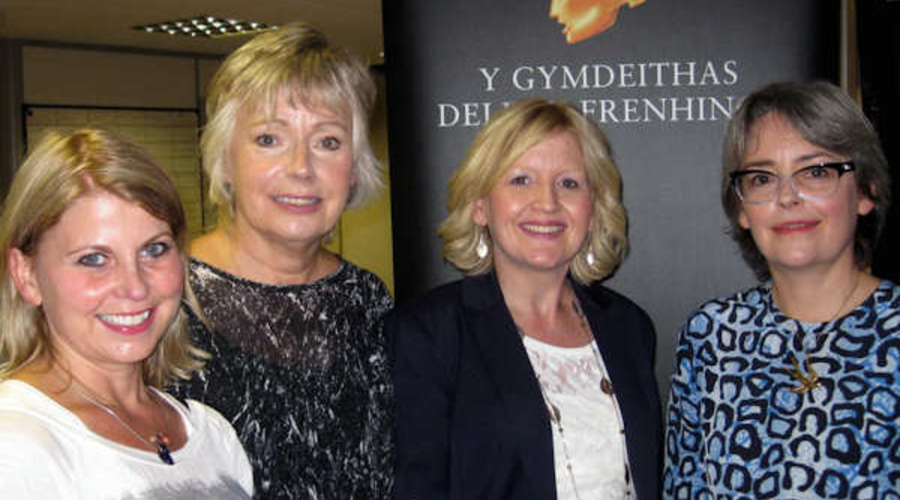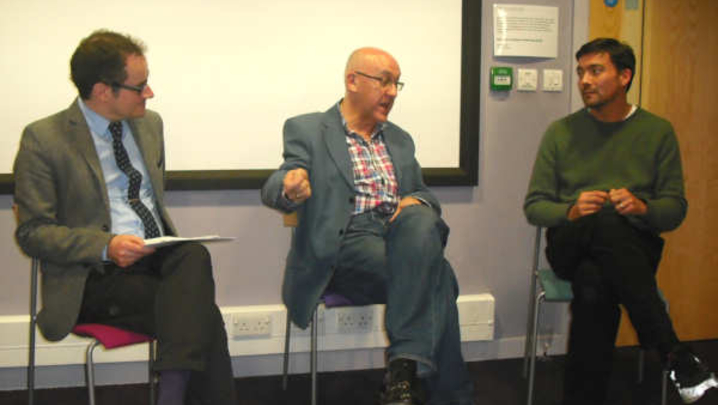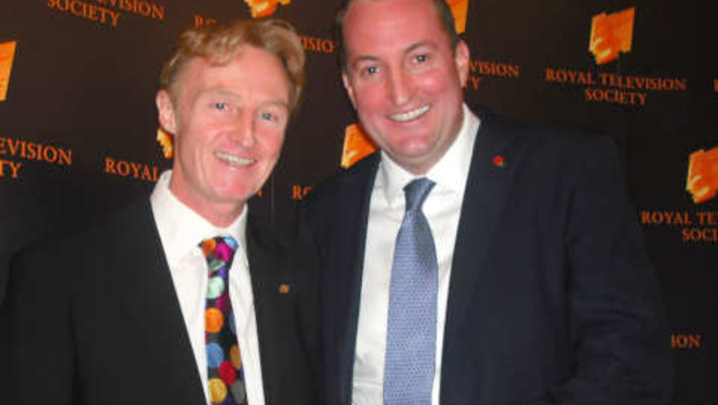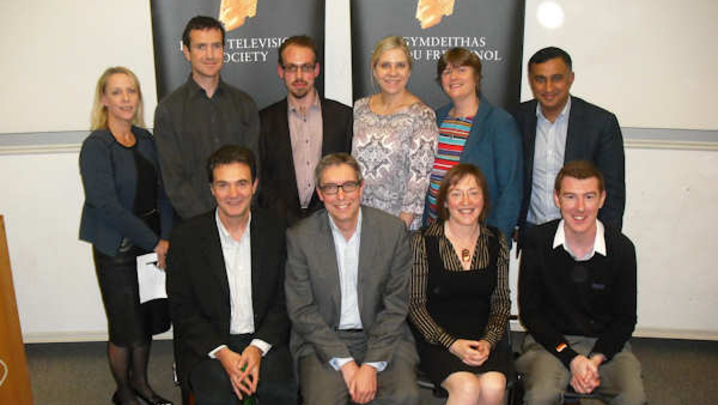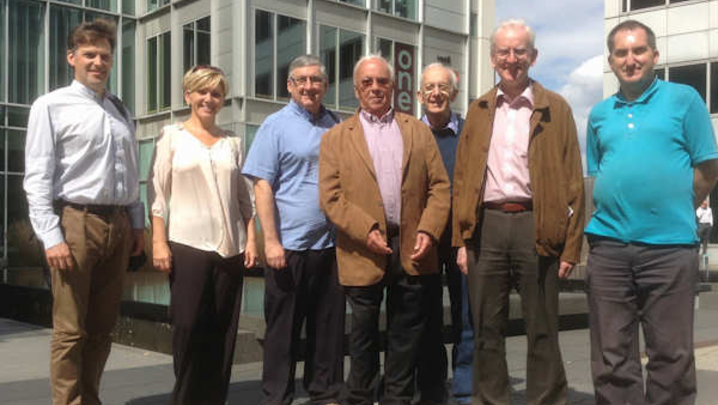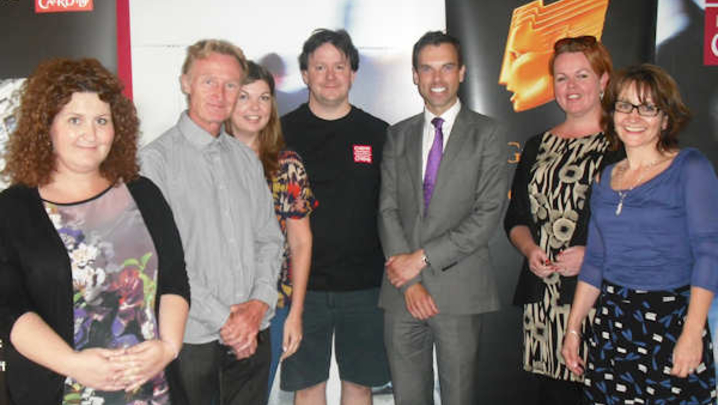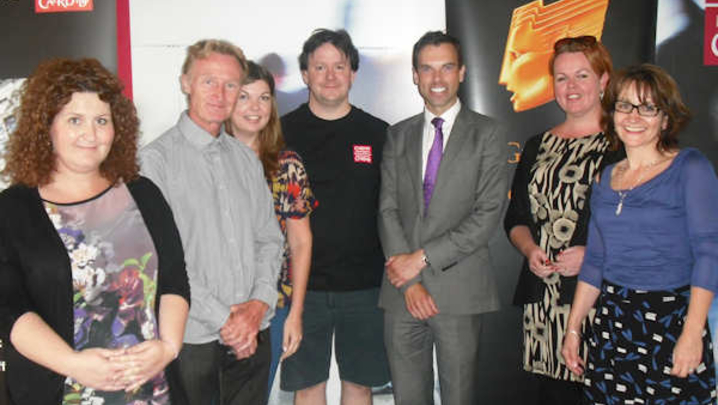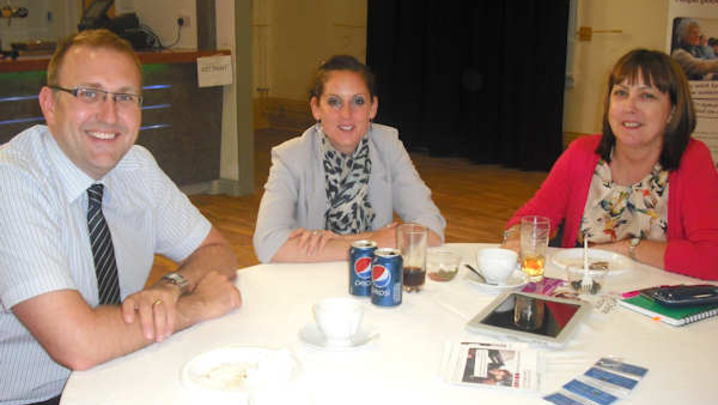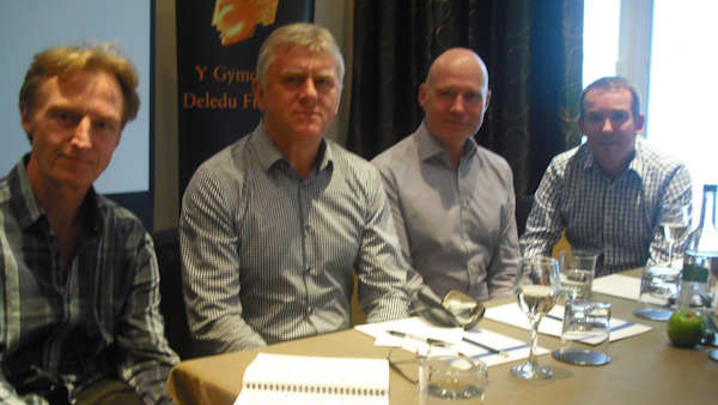Above: Elen Rhys, Angharad Garlick, Helen Howells, and Sioned Wyn Roberts
'Not in front of the Children' - Can Quality and Originality Survive?
A discussion on Children's Television on Wednesday, 25 September, 2013
Despite Ofcom data which shows spend on children’s programmes is in serious decline, the RTS Wales Centre’s discussion on children’s TV was surprisingly upbeat. Chaired by Sioned Wyn Roberts, S4C's commissioner for education and children's content, the panellists were Helen Howells, founder and Co-director of London based indie, Ho Ho Entertainment, Elen Rhys, a Producer with CBeebies, BBC Learning and BBC Cymru Wales, and Angharad Garlick, Head of Boom Plant, part of Boom Pictures, a major supplier of children’s programmes to S4C, who also provided the venue for the event.
Angharad described how Boom, in conjunction with Cube Interactive, had designed the UK’s first second-screen based game, The Lift, launched by S4C last year. She added that, ‘the older generation treats digital as a major revolution but kids take it for granted’. Elen agreed, claiming that, ‘we have to embrace digital technology and see how it can help us produce content, market our ideas and create brands’.
With children increasingly using apps and on-line services such as the iPlayer, some of the panellists felt that the BBC Trust’s review of the BBC’s Children’s services, published the same day as the event, was short sighted in suggesting that some kids programmes should return to BBC 1 and 2. But they acknowledged that there are fewer UK broadcasters in the game. According to Helen, 'ITV has abandoned its pre-school slots, and Channel 5 is just an acquisition house’, adding that, ‘in the UK, with budgets so small, you need very long runs, of perhaps 100 or more episodes, to achieve scale and critical mass’. Angharad noted that, 'there is fierce competition in the children's TV market currently' and that in a world dominated by US cultural values, creating content for kids in the Welsh language was a particular challenge. 'Children have to feel the programmes are relevant, regardless of language'. But for Helen, flexibility is key, 'our biggest challenge is finding ideas that appeal in both the UK and international markets'.
A discussion on the latest commissioning trend for ‘gender neutral programming’ prompted the question as to why so many women work in children’s TV. In response, Helen noted that ‘many of the international buyers are women, offsetting the trend for men to dominate in business affairs elsewhere in the industry’. This was a fascinating discussion, and as a bonus, Members also had the opportunity to look round Boom’s impressive studio and post production facilities prior to the event.

